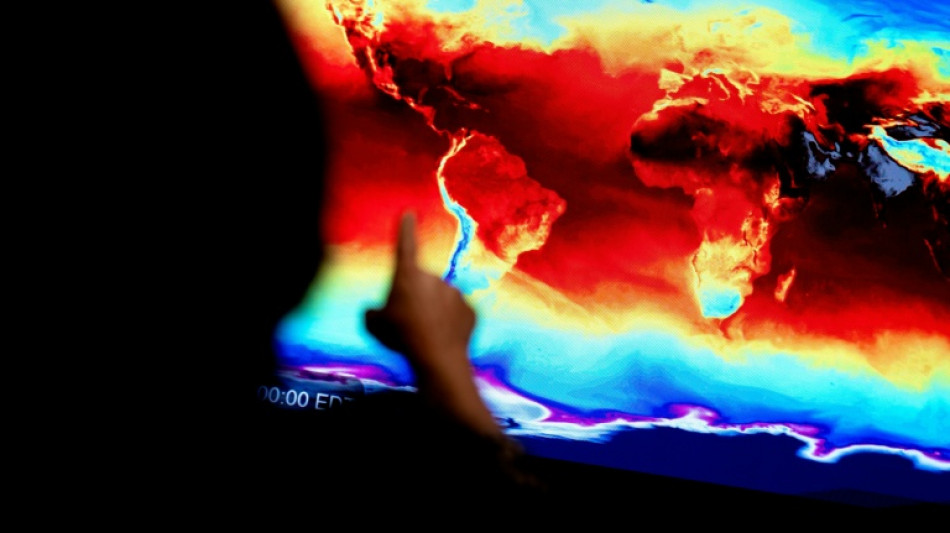
-
 Vonn to provide injury update as Milan-Cortina Olympics near
Vonn to provide injury update as Milan-Cortina Olympics near
-
France summons Musk for 'voluntary interview', raids X offices

-
 Stocks mostly climb as gold recovers
Stocks mostly climb as gold recovers
-
US judge to hear request for 'immediate takedown' of Epstein files

-
 Russia resumes large-scale strikes on Ukraine in glacial temperatures
Russia resumes large-scale strikes on Ukraine in glacial temperatures
-
Fit-again France captain Dupont partners Jalibert against Ireland

-
 French summons Musk for 'voluntary interview' as authorities raid X offices
French summons Musk for 'voluntary interview' as authorities raid X offices
-
IOC chief Coventry calls for focus on sport, not politics

-
 McNeil's partner hits out at 'brutal' football industry after Palace move collapses
McNeil's partner hits out at 'brutal' football industry after Palace move collapses
-
Proud moment as Prendergast brothers picked to start for Ireland

-
 Germany has highest share of older workers in EU
Germany has highest share of older workers in EU
-
Teen swims four hours to save family lost at sea off Australia

-
 Ethiopia denies Trump claim mega-dam was financed by US
Ethiopia denies Trump claim mega-dam was financed by US
-
Norway crown princess's son pleads not guilty to rapes as trial opens

-
 Russia resumes strikes on freezing Ukrainian capital ahead of talks
Russia resumes strikes on freezing Ukrainian capital ahead of talks
-
Malaysian court acquits French man on drug charges

-
 Switch 2 sales boost Nintendo profits, but chip shortage looms
Switch 2 sales boost Nintendo profits, but chip shortage looms
-
China to ban hidden car door handles, setting new safety standards

-
 Switch 2 sales boost Nintendo results but chip shortage looms
Switch 2 sales boost Nintendo results but chip shortage looms
-
From rations to G20's doorstep: Poland savours economic 'miracle'

-
 Russia resumes strikes on freezing Ukrainian capital
Russia resumes strikes on freezing Ukrainian capital
-
'Way too far': Latino Trump voters shocked by Minneapolis crackdown

-
 England and Brook seek redemption at T20 World Cup
England and Brook seek redemption at T20 World Cup
-
Coach Gambhir under pressure as India aim for back-to-back T20 triumphs

-
 'Helmets off': NFL stars open up as Super Bowl circus begins
'Helmets off': NFL stars open up as Super Bowl circus begins
-
Japan coach Jones says 'fair' World Cup schedule helps small teams

-
 Equities and precious metals rebound after Asia-wide rout
Equities and precious metals rebound after Asia-wide rout
-
Do not write Ireland off as a rugby force, says ex-prop Ross

-
 Winter Olympics 2026: AFP guide to Alpine Skiing races
Winter Olympics 2026: AFP guide to Alpine Skiing races
-
Winter Olympics to showcase Italian venues and global tensions

-
 Buoyant England eager to end Franco-Irish grip on Six Nations
Buoyant England eager to end Franco-Irish grip on Six Nations
-
China to ban hidden car door handles in industry shift

-
 Sengun leads Rockets past Pacers, Ball leads Hornets fightback
Sengun leads Rockets past Pacers, Ball leads Hornets fightback
-
Waymo raises $16 bn to fuel global robotaxi expansion

-
 Netflix to livestream BTS comeback concert in K-pop mega event
Netflix to livestream BTS comeback concert in K-pop mega event
-
Rural India powers global AI models

-
 US House to vote Tuesday to end shutdown
US House to vote Tuesday to end shutdown
-
Equities, metals, oil rebound after Asia-wide rout

-
 Bencic, Svitolina make history as mothers inside tennis top 10
Bencic, Svitolina make history as mothers inside tennis top 10
-
Italy's spread-out Olympics face transport challenge

-
 Son of Norway crown princess stands trial for multiple rapes
Son of Norway crown princess stands trial for multiple rapes
-
Side hustle: Part-time refs take charge of Super Bowl

-
 Paying for a selfie: Rome starts charging for Trevi Fountain
Paying for a selfie: Rome starts charging for Trevi Fountain
-
Faced with Trump, Pope Leo opts for indirect diplomacy

-
 NFL chief expects Bad Bunny to unite Super Bowl audience
NFL chief expects Bad Bunny to unite Super Bowl audience
-
Australia's Hazlewood to miss start of T20 World Cup

-
 Bill, Hillary Clinton to testify in US House Epstein probe
Bill, Hillary Clinton to testify in US House Epstein probe
-
Cuba confirms 'communications' with US, but says no negotiations yet

-
 Iran orders talks with US as Trump warns of 'bad things' if no deal reached
Iran orders talks with US as Trump warns of 'bad things' if no deal reached
-
From 'watch his ass' to White House talks for Trump and Petro


Without US satellites, 'we go dark', climate monitor tells AFP
US budget cuts risk creating blind spots in Earth monitoring systems that would imperil weather forecasting and climate research for years to come, the deputy chair of a key UN-backed climate monitoring body warned in an AFP interview.
Peter Thorne is the deputy chair of the Global Climate Observing System (GCOS), a little-known but crucial UN-backed programme that tracks and evaluates data on the atmosphere, land and ocean.
"In the 30 years I've been in this game, we've always seen incremental improvements in our ability to diagnose the Earth system," Thorne, who is also a professor at Ireland's Maynooth University, told AFP.
"This is possibly the first time we're looking at an acute reversal in our capability to monitor the Earth, just when we need it the most."
Humanity has more data than ever about the planet: from balloons tracking winds and bobbing sea floats gauging ocean heat, to satellites with sweeping views of glaciers, ice sheets and atmospheric pollution.
But years of complacency and threats to funding from President Donald Trump's current and proposed budget cuts in the United States are raising fears over the future of this global effort to understand Earth.
This matters for climate change, but also for weather forecasts that inform farmers and provide early warnings for storms, floods, heatwaves and drought, Thorne said.
The issue was raised at COP30 in Brazil on Saturday by the technical body of the UN climate negotiations, which stressed the "vital importance" of monitoring and long-term data records.
In a draft report, it expressed concern over declining support for long-term observation networks, including GCOS.
The following interview with Thorne has been edited for flow and clarity:
Q: What is the current situation?
A: "It is beyond doubt that the global observing system is under considerable strain. This is a wake-up call to the rest of the world. We've dined out on America's largesse to fund major swathes of the Earth Observing System.
"The US has also made a significantly outsized contribution to global coordination. These aren't the sexy things, but they keep the show on the road. GCOS itself will close its doors at the end of 2027 without additional funds.
"Already weather balloons in the US are down some 13 to 16 percent, as a result of the reduction in workforce able to launch them.
"This is having a negative impact, not necessarily on the forecast for America, but for Europe or even Asia.
"Your forecast at five or 10 days' time isn't dependent upon what you launch in your backyard, it's what's being launched in the backyard of where your weather's coming from. America's forecast is critically dependent upon Japan or Singapore launching their weather balloons.
"That's why we need a coordinated observing system and global cooperation."
Q: What are the concerns for the future?
A: "If even half of the president's budget proposals come to fruition we're in big, big trouble.
"If you look at the proposal, it basically zeros all future Earth observation satellite capabilities from NASA and potentially also significantly reduces NOAA (National Oceanic and Atmospheric Administration) satellites.
"Many of those NASA missions at risk have no obvious contemporary within the European Space Agency's (ESA) programme, JAXA (Japan Aerospace Exploration Agency), the Indian satellite programme, or the Chinese satellite programme. Those would be lost observations forever, lost understanding that we'll never get back.
"The US also makes a huge contribution to monitoring the ocean. It contributes roughly 50 percent of the Argo float program, which diagnosed where 90 percent of the heat in the Earth system is going.
"Also the Moored Buoy Array in the Pacific, which is key for monitoring and predicting El Nino. This is also key to seasonal predictability for the US in winter, but also for much of the tropics throughout the year, and forecasts in Africa that drive agricultural production decisions. These risk being much, much poorer."
Q: Can others step in?
A: "If one or more of the NASA satellites or NOAA satellites do not launch, that is a guaranteed multi-year, or even decade-plus gap in Earth observation capability. We go dark on seeing some things about the Earth, potentially. Others are new missions which would have enabled us to see the Earth even better.
"If ESA said tomorrow, let's moonshot this and replace the NASA satellites, you're looking at at least 10 or 15 years.
"I can't say what will happen. But it's important that we observe the Earth system, because it's our life support system, we've got to understand it."
P.Tamimi--SF-PST




